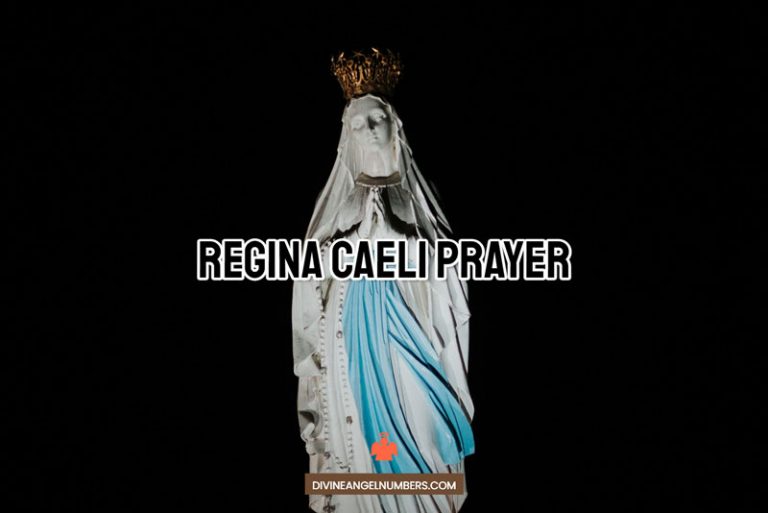The Litany of Humility is popularly attributed to Cardinal Rafael Merry del Val (1865-1930). Cardinal Rafael del Val was the Cardinal Secretary of State of the Holy under Pope Pius X. It was the popular English Author and Anglican lay theologian, C.S. Lewis, who was the first to attribute Cardinal del Val to the composition of the Litany of Humility in March of 1948 in a letter to Don Giovanni Calabria.
Although many books such as the Handbook of Prayers by Father Charles Belmonte credit the prayer to Cardinal Merry del Val, it is worth noting that another prayer known as a “Litany to Obtain Holy Humility, was published in 1867 and Cardinal del Val’s litany was published in 1879.
Many Biblical Historians believed that Cardinal Merry del Val found the poem while translating the French of the Fifth Edition when he found the lesser-known but already published prayer. Therefore, to this day the original author of the Litany of Humility is still unknown.
Meaning
In the first invocations, we ask God to save us from the inordinate desire to find value in our lives by comparing it to others and from the need of being extolled, esteemed, and preferred by others. The next set of invocations deals with all types of fears that stop us from being humble. For instance, we fear being humiliated, so we avoid any situation that might cause us humiliation. Similarly, we fear being ridiculed, so we pretend to be tough on the outside.
The last invocation which state, “That others may become holier than I, provided that I may become as holy as I should,” is extremely powerful as we are praying to God to make us as holy as we deserve to be and let others grow in greater holiness than us. It reminds us that we are nothing but the simple, poor, and humble instruments of God.
Overall, this prayer teaches us that humility is all about accepting the fact that we are the beloved child of God and don’t deserve to be acknowledged or receive anything in return for our faith but to simply follow God’s will all of our hearts.
Purpose
The purpose of praying to this litany regularly is to ask God to guide us out of places of sin, fear, and distrust. We ask God to lead us to a place of love and trust by giving us the strength to trust His plan for our day, week, and life.
We pray this litany when we place ourselves and our self-esteem above our love of God and our neighbors. We also pray to be delivered from the desires of being preferred to others, honored, and praised, along with other desires that hold us back from experiencing true freedom with Jesus Christ.
Litany of Humility
O Jesus, meek and humble of heart, Hear me.
From the desire of being esteemed, Deliver me, O Jesus.
From the desire of being loved, Deliver me, O Jesus.
From the desire of being extolled, Deliver me, O Jesus.
From the desire of being honored, Deliver me, O Jesus.
From the desire of being praised, Deliver me, O Jesus.
From the desire of being preferred to others, Deliver me, O Jesus.
From the desire of being consulted, Deliver me, O Jesus.
From the desire of being approved, Deliver me, O Jesus.
From the fear of being humiliated, Deliver me, O Jesus.
From the fear of being despised, Deliver me, O Jesus.
From the fear of suffering rebukes, Deliver me, O Jesus.
From the fear of being calumniated, Deliver me, O Jesus.
From the fear of being forgotten, Deliver me, O Jesus.
From the fear of being ridiculed, Deliver me, O Jesus.
From the fear of being wronged, Deliver me, O Jesus.
From the fear of being suspected, Deliver me, O Jesus.
That others may be loved more than I, Jesus, grant me the grace to desire it.
That others may be esteemed more than I, Jesus, grant me the grace to desire it.
That, in the opinion of the world, others may increase and I may decrease, Jesus, grant me the grace to desire it.
That others may be chosen and I set aside, Jesus, grant me the grace to desire it.
That others may be praised and I go unnoticed, Jesus, grant me the grace to desire it.
That others may be preferred to me in everything, Jesus, grant me the grace to desire it.
That others may become holier than I, provided that I may become as holy as I should, Jesus, grant me the grace to desire it.
Each one of us suffers from the fear of rejection or humiliation. How many times have you felt the panic of being ignored in front of people? We always dread being viewed with suspicion and mocked.
The litany of Humility at its essence gives us the strength to ignore such thoughts and feelings. We should abstain from negative emotions such as pride, ego, and vanity.
Read more: Litany of the Blessed Mary
How to pray the Litany of Humility?
Here are some tips to help you incorporate the Litany of Humility in your daily routine when you wish to experience humility:
Consistency
Praying the litany every day has the potential to make a profound impact on your life as it helps you form a real spiritual connection with Jesus Christ. You can make it a habit to pray the litany every day while performing a chore you perform consistently on a regular basis. For instance, start reciting the litany while you are waiting for your coffee to brew or while going on your early morning walk.
Pray throughout the day
In order to deeply understand the meaning behind this prayer and inculcate its teaching, it is important that not only do you pray this prayer every day but that you try to really absorb and digest the meaning of the words one line at a time.
Meditate on Bible verses
Every day when you pick a line to absorb, meditate on related Bible verses or ask God for assistance in showing you specific areas of life where you need to grow.
Add to the Litany
You can simply add a few extra lines based on areas where you actually struggle with. Writing your own prayers is not a prohibited habit and can be an extremely profound way to understand the meaning on a deeper level.
What is a Litany?
A litany is a series of petitions used in church services or processions that is recited by the clergy and responded to in a recurring formula by the church-going people. It can also be defined as a prayer that consists of a series of invocations and supplications by the leader with alternate responses by the congregation.
The Litany of Humility is a popular Catholic prayer that grants the reciter the virtue of humility. It is used in both public liturgical services and in the private devotion of adherents.
In Christianity, Humility is considered one of the greatest virtues but it is also the most difficult to achieve because most of us want to be respected, praised, and recognized by people around us. However, when a person is humble and lives their life with humility, they are able to recognize their personality defects and realize that it is God that has led to everything good in their lives and not us.
Jesus tells us in the Gospel of Matthew, “Whoever exalts himself will be humbled, and whoever humbles himself will be exalted.” Therefore, many people even associate the characteristic of humility with saintliness as is pointed out in Ephesians 4:2, “be completely humble and gentle; be patient, bearing with one another in love.” The Litany of Humility is a powerful prayer that helps us ask God for his help in helping us recognize our need for greater humility.
Conclusion
The Litany of Humility is an extremely profound and important litany that helps people be delivered from their own selfish desires, distorted sense of self-importance, reliance on self, and fear of sacrificing our own comfort for the sake of another. The Litany of Humility is also a moving prayer apt for private devotions that can bring us closer to Jesus Christ.



